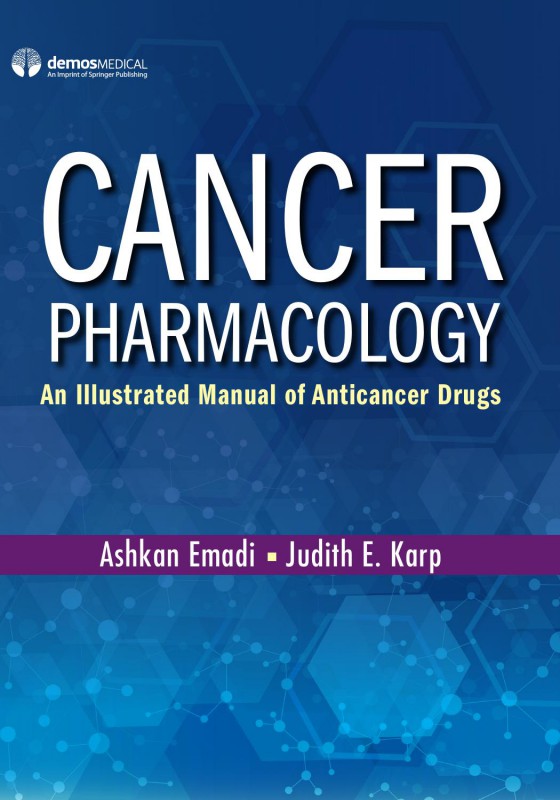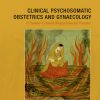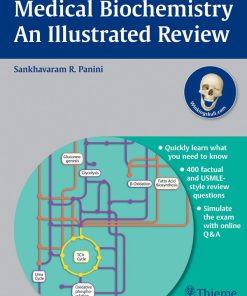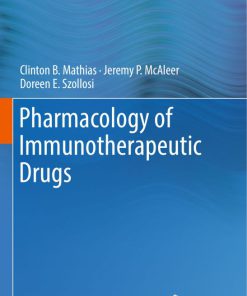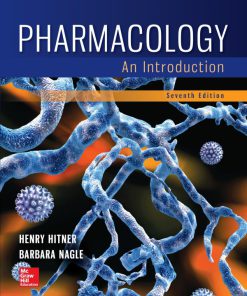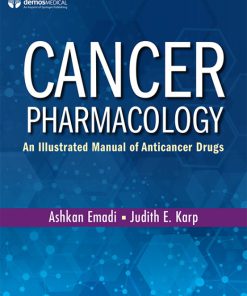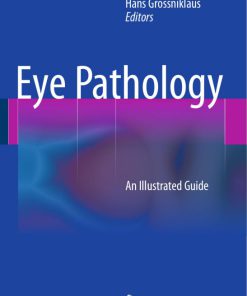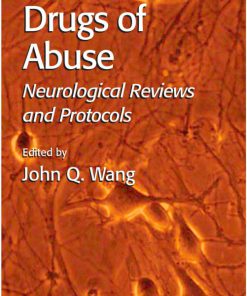Cancer Pharmacology An Illustrated Manual of Anticancer Drugs 1st edition by Ashkan Emadi, Judith Karp ISBN 0826162037 978-0826162038
$50.00 Original price was: $50.00.$25.00Current price is: $25.00.
Authors:Ashkan Emadi, MD, PhD, Judith E. Karp, MD , Series:Pharmacology [56] , Author sort:Ashkan Emadi, MD, PhD, Judith E. Karp, MD , Languages:Languages:eng , Published:Published:Nov 2019 , Publisher:demas
Cancer Pharmacology: An Illustrated Manual of Anticancer Drugs 1st edition by Ashkan Emadi, Judith Karp – Ebook PDF Instant Download/Delivery. 0826162037 978-0826162038
Full download Cancer Pharmacology: An Illustrated Manual of Anticancer Drugs 1st edition after payment

Product details:
ISBN 10: 0826162037
ISBN 13: 978-0826162038
Author: Ashkan Emadi, Judith Karp
Cancer Pharmacology: An Illustrated Manual of Anticancer Drugs provides a one-stop guide to the essential basic and clinical science of all the effective, life-prolonging drug therapies in oncology. From traditional cytotoxic agents to targeted genomic, epigenomic, hormonal, and immunotherapeutic agents, this pharmacology book covers the staggering advances in cancer pharmacology that are propelling new standards of care for common and uncommon malignancies.
Beautifully illustrated throughout, each chapter in this cancer pharmacology guide contains visually engaging figures detailing the tumor microenvironment, chemical structures of agents, pharmacodynamics, pharmacokinetics, pharmacogenomic, and molecular properties of the various agents, and their mechanisms of action. As the first illustrated book of its kind, this highly visual text uses a uniform approach to each cancer drug class and agent presented in the book, and covers alkylating agents, antimetabolites, antimitotics, epigenetic modulators, hormonal agents, targeted therapies, monoclonal antibodies, immunotherapeutic agents, and much more.
Flow diagrams, clinical tables, and bulleted text further explain important information pertaining to each cancer drug class including their indications, mechanisms of action, potential adverse reactions, dosing and dose adjustments, and safety monitoring. Organized in an easy-to-digest format and replete with detailed images, clinical pearls, and end of chapter Q&As, this evidence-based reference presents all major classes, agents, targets, and approaches to oncology pharmacotherapy.
Cancer Pharmacology: An Illustrated Manual of Anticancer Drugs 1st Table of contents:
Section 1: Introduction to Cancer and Pharmacology
- Overview of Cancer
- What is cancer? Types of cancer (solid tumors, hematological cancers)
- Cancer cell biology and genetics
- Principles of cancer treatment and drug development
- Principles of Cancer Pharmacology
- Basic pharmacology principles related to cancer drugs
- Mechanisms of action of anticancer agents
- Drug resistance in cancer therapy
Section 2: Classes of Anticancer Drugs
- Chemotherapy Agents
- Overview of chemotherapy drugs
- Cell cycle phase-specific and non-specific agents
- Alkylating agents
- Antimetabolites (e.g., methotrexate, fluorouracil)
- Topoisomerase inhibitors
- Targeted Therapy and Biologic Agents
- Monoclonal antibodies (e.g., trastuzumab, rituximab)
- Tyrosine kinase inhibitors
- Immunotherapy agents (e.g., checkpoint inhibitors)
- Gene-targeted therapies
- Hormonal Therapy
- Hormone-sensitive cancers (breast, prostate cancer)
- Estrogen receptor modulators and aromatase inhibitors
- Anti-androgens and luteinizing hormone-releasing hormone agonists
- Natural Product Anticancer Agents
- Plant-derived agents (e.g., taxanes, vinca alkaloids)
- Natural product-based chemotherapies
- Mechanisms of action of natural anticancer drugs
Section 3: Drug Resistance and Mechanisms
- Mechanisms of Drug Resistance in Cancer
- Cellular mechanisms of resistance (e.g., efflux pumps, mutations)
- Overcoming resistance in anticancer therapies
- Strategies to improve drug efficacy
- Pharmacogenomics in Cancer Treatment
- Genetic variations affecting drug response in cancer patients
- Personalized cancer therapy based on genetic profiles
Section 4: Cancer Drug Delivery and Dosage
- Drug Delivery Systems for Cancer Treatment
- Nanotechnology and nanoparticles in cancer therapy
- Liposomal and polymer-based drug delivery
- Challenges in targeted drug delivery
- Pharmacokinetics of Anticancer Drugs
- Absorption, distribution, metabolism, and elimination of cancer drugs
- Impact of the blood-brain barrier on drug delivery
- Dose adjustments and monitoring
Section 5: Side Effects and Management
- Side Effects of Cancer Drugs
- Acute and chronic toxicities of chemotherapy
- Common side effects: nausea, hair loss, myelosuppression, etc.
- Organ-specific toxicities (cardiotoxicity, hepatotoxicity)
- Management of Cancer Treatment Side Effects
- Supportive care in cancer therapy
- Drugs for managing nausea, pain, and bone marrow suppression
- New approaches to reduce toxicities in cancer treatments
Section 6: Clinical Applications of Cancer Pharmacology
- Chemotherapy in Solid Tumors
- Treatment protocols for breast, lung, colorectal, and other solid tumors
- Combination chemotherapy regimens
- New advances in treatment regimens
- Chemotherapy in Hematological Malignancies
- Pharmacologic treatment of leukemia, lymphoma, myeloma
- Chemotherapy regimens for hematologic cancers
- Pediatric and Geriatric Cancer Pharmacology
- Pediatric oncology: unique challenges in drug therapy for children
- Geriatric oncology: aging populations and cancer drug use
- Personalized treatment strategies for special populations
Section 7: Advances and Future Directions
- Emerging Therapies in Cancer Pharmacology
- CAR-T cell therapy
- Epigenetic therapies
- Combination strategies: chemotherapy + immunotherapy
- Gene editing techniques in cancer treatment
- Future Prospects in Cancer Drug Development
- Precision medicine and personalized cancer treatment
- Innovative cancer drugs in clinical trials
- The future of immunotherapy and targeted agents
People also search for Cancer Pharmacology: An Illustrated Manual of Anticancer Drugs 1st:
cancer pharmacology an illustrated manual of anticancer drugs 2nd edition
cancer pharmacology an illustrated manual of anticancer drugs pdf
cancer pharmacology book
cancer pharmacology emadi
cancer pharmacology and pharmacotherapy review
You may also like…
eBook PDF
Drugs of Abuse Neurological Reviews and Protocols 1st Edition by John wang 1588290573 978-1588290571

